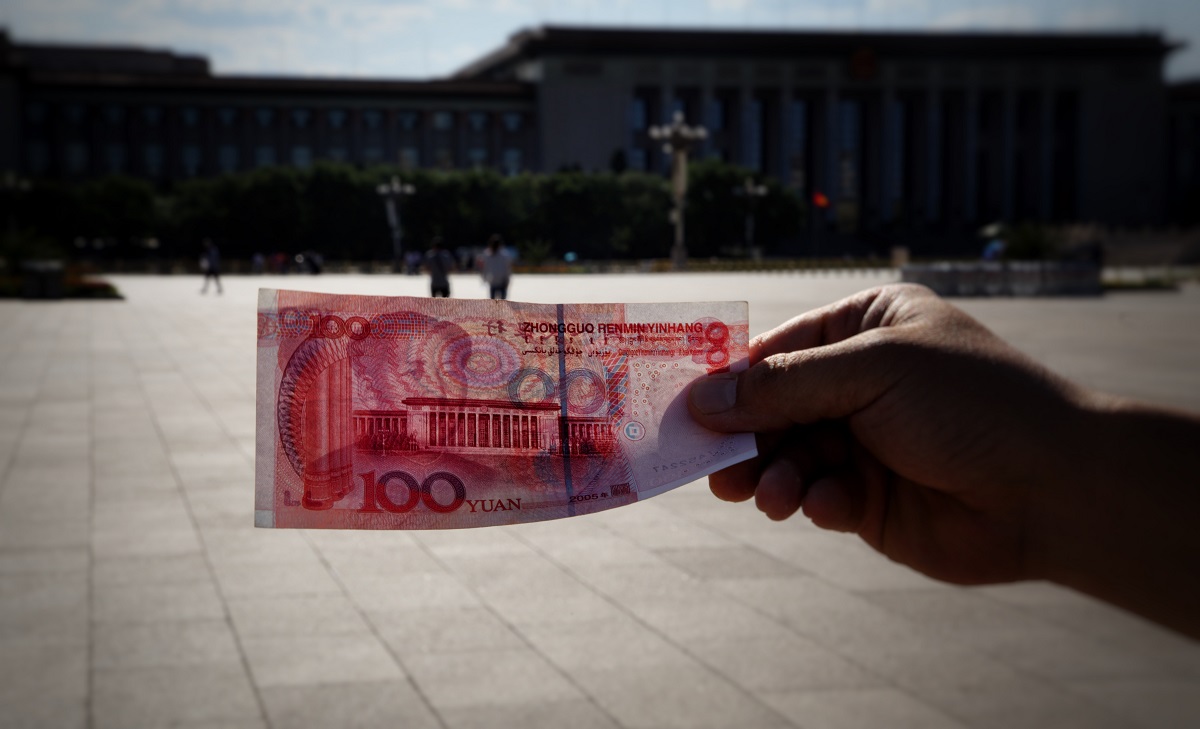Moscow, Beijing's financial province
Russia's "turn to the East" imposed by Western sanctions is transforming the Russian financial sector, both ideologically and practically with effects that will be long-lasting. All decisions on the matter are now being made in Beijing, which is imposing its planned schemes forcing Moscow to accept the role the Chinese give it in the "yuan world."
Moscow (AsiaNews) - China has not joined the international sanctions against Russia for the invasion in Ukraine, and this is allowing the Russian economy to endure without too much drama the consequences of the crisis related to the abrupt interruption of trade with Western countries.
The measures of countering sanctions, and supporting the "strong ruble" that accompanied Moscow's policy in 2022, along with the strong gains from higher gas and oil prices, are now definitely over, and the picture of the new "division of the world" at the economic level is beginning to emerge.
Russia's "turn to the East," a classic of its political and economic history since the Middle Ages, is first and foremost transforming the Russian financial sector, both ideologically and practically. Russia's major banks have been excluded from the Swift system, and by now no one thinks that it will be enough to wake up tomorrow from the bad dream, to return to the relations of a year and a half ago.
The present, and a future of unforeseeable length, is the embrace with Chinese partners, who appear to the protagonists of Russian finance to be very untrustworthy, and utterly opaque, but by now there is no alternative.
As early as last May, the executive director of the National Association of Financial Communications of Russia, Roman Černov, reported that some 30 Russian banks had somehow linked up with China's national banking system for transactions with the Cross-Border Interbank Payment System (Cips), which allows payments in yuan as secondary partners.
In June, Russian banks faced new measures to curtail currency transactions with banks in the EU, Britain, the U.S. and even Switzerland, this time not because of sanctions, but because of a decision by the Bank of China, as the main correspondent for all Chinese currency business, without publicly explaining the reasons.
These shake-ups in the banking IT field are explained by the transformation at various levels of the whole sector, which involves very complicated procedures at the technical level, starting with changes in programming, and the concordance of legal aspects, which can drag on for a very long time.
All decisions on this are now made in Beijing, which imposes its schemes on Russian banks, which are now integrated into the Chinese system. The Russians have no say in the ongoing processes of changing and confirming rules, and are forced to accept the role the Chinese ascribe to them in the "yuan world," which in the context of finance does not recognize any "Russian world."
It is difficult to understand China's economy from the outside, reading it in analogy with Western countries or Russia itself, at least that of the last three decades. Chinese companies compete globally by inserting themselves into global market mechanisms, but at its core China remains a replica of the vanished Soviet Union, only remade with plastic surgery. The planned economy means total control by the central government, in all sectors, and the Russians had long forgotten that.
Russian sinologist Mikhail Karpov reminds his compatriots of the aspects they will now have to get used to again, particularly the division between what must be planned and what can be dealt with privately, creating great confusion in the practitioners, as even the president of the Central Bank, Elvira Nabiullina, continues to warn in Russia.
In addition, there are no clear and shared rules of control because the government in Beijing can impose limits and changes without needing to agree them with anyone.
Finally, the financial market can appear pliable at some times, and suddenly collapse at others, with unexpected and unappealable bankruptcies, depending on the regime's convenience. And the first to be eliminated, should the need arise, will be precisely the Russian partners, now slaves to the yuan, which imposes its golden rule: friends forever, but money has no friends.
22/03/2022 12:15
08/01/2024 09:12
01/03/2022 09:30







.png)










